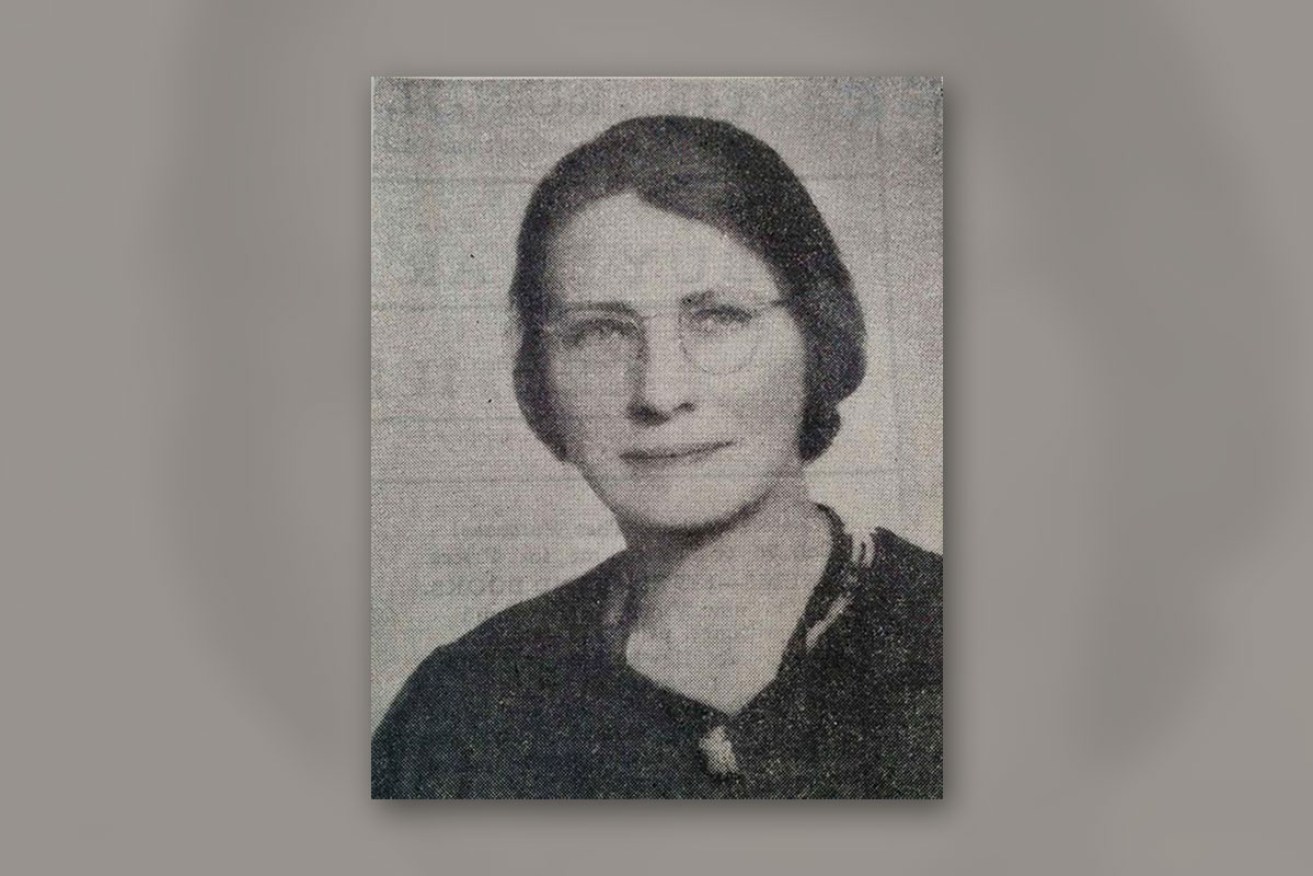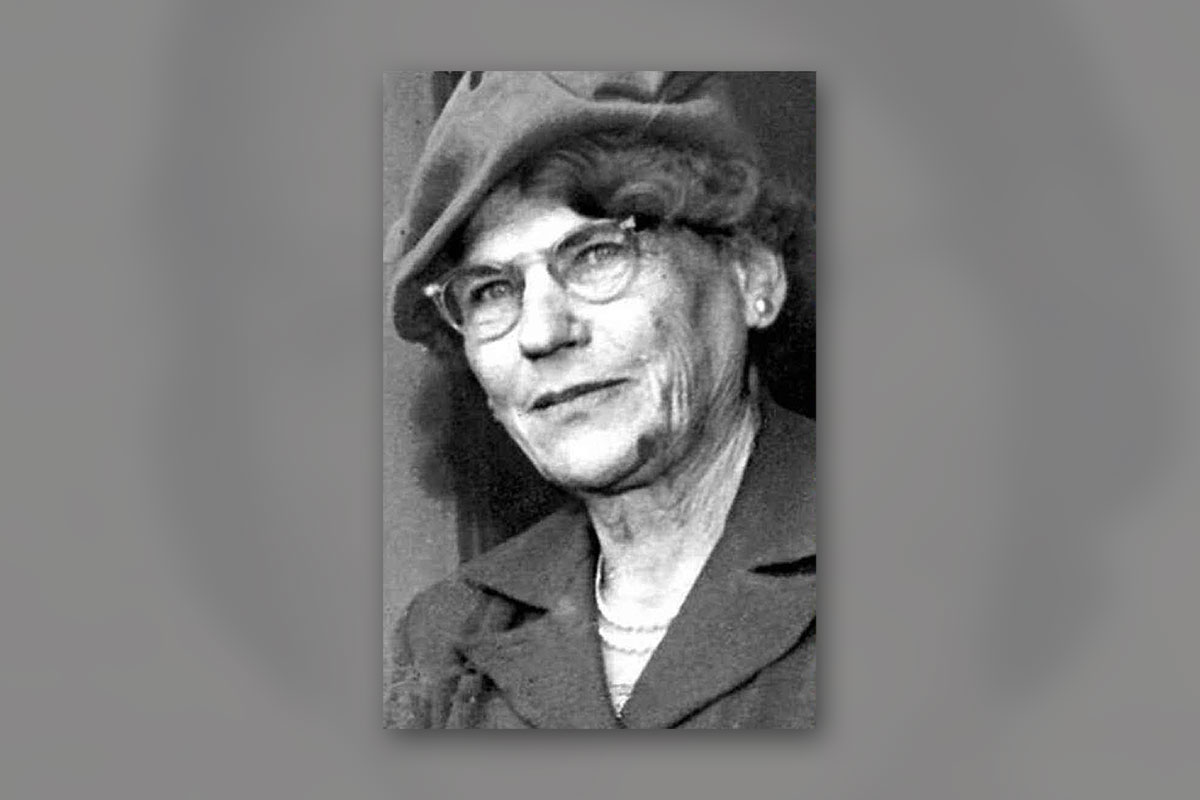May Mills pushed sport and education boundaries for women to follow
May Mills was a pioneer in sport and education and changed both fields for women. Now, she’s being inducted into the South Australian Sport Hall of Fame.


May Mills is being posthumously welcomed into the South Australian Sports Hall of Fame for her contributions. Photo: South Australian Teachers' Journal
Born four years before women were allowed to vote in South Australia, Mills didn’t let gender expectations hold her back. She was, for example, the first woman in South Australia to gain a driving license.
Speaking to ABC Radio on its ‘Now in Retirement’ show in 1969, Mills said she had initially hoped to have a career in the medical field as a child.
“I’m one of nine children, and though father told me to make my decision… mother pointed out there were five more of the younger ones still to come on for secondary education, and that if I went on to that extensive training, she was afraid some of the others would suffer,” Mills said.
After leaving boarding school in 1910, Mills decided to move back home to her family’s station, near Mt Barker.
“I never regretted it because I learned an enormous lot in those years that I stayed home,” Mills said.
She eventually completed a teachers’ college course in 1917, and was described by a supervisor as “enthusiastic, inspiring, sympathetic and successful”.
Mills explained that there was minimal training available at that time, and after one year you either went out to a primary school, or if you did well you were given the option of a second year.
“Another girl and I were given the option to go on and do the second year’s training,” Mills said.
“There was no third or fourth year… although some of the five returned men (from WWI) who were in our year, did get a third and even a fourth year, but that, of course, was a different matter.”
Mills went on to teach at Unley High School for 35 years, and coached girls’ sport for over 20 years, working to establish sport within the education system.
“Sport, we felt, was a very necessary part of secondary education – indeed of all education,” Mills said.
At one point the school Mills was teaching at did not have any sports facilities, but after an area of land became available nearby, a group of parents and staff bought the pebble-strewn block.
“Instead of Phys. Ed. every morning, large kerosene tins were put at each end… and these youngsters marched back and forth gathering these pebbles… That yard was as clean as it could possibly be in a week.”

May Mills played a major role in securing sporting fields for women in South Australia. Photo: AdelaideAZ
Mills spoke 55 years ago of young people’s influence, in a tone that echoes the modern experience.
“I have been a bit worried about the recent riots and chaotic circumstances that are taking place throughout the world, but I don’t think that the young people are any more rebellious or rumbustious than they ever were, but there are more of them,” Mills said.
Founding president of the South Australian Women’s Amateur Sports Council, Mills believed the “wholesome development of a nation largely depends on well-organised and widely-played sport”.
Mills lobbied then Premier Sir Thomas Playford to secure access to sporting fields for women, resulting in an area of eight hectares being dedicated to the contributions made by women in the army, navy and air force during WWII.
Mills was on both state and national women’s cricket councils, and she helped establish the South Australian Women’s Memorial Playing Field at St Marys. She was awarded the Order of the British Empire in 1960 in recognition of her work in both sports and education.
Mills was president of the High Schools Women Teachers’ Combined Association in 1937, and the Geography Teachers’ Association from 1938, as well as vice president of the South Australian Public Teachers’ Union and in 1943 the union’s first female president.
In 1933 she was the first woman to present a paper to the South Australian branch of the Royal Geographical Society of Australasia. Her work was described as “a pioneer contribution to the study of local geography”.
She ran in the 1959 state election as the Liberal and Country League candidate for Edwardstown, though she was beaten by the Labor party’s Francis (Frank) Walsh.
“It wasn’t in my fate to get in. I came within a little of approaching Mr Walsh, even though he was the leader of the opposition, or the Premier as he afterwards became,” Mills said.
“I haven’t been afraid to try things, and I think that is a good thing for most people. You’ve got to have courage to do things if you want to do things.”
Speaking in 1969, Mills shared this comment on the status of women on society: “I think women in professions are looked upon as, ‘well, if they’ve reached that far, well they must be accepted as equals with the men.’”
The latest addition to the South Australian Sport Hall of Fame, May Mills passed away in 1984.
Her award will be accepted at the Hall of Fame event this evening by Emerson Warren, May Mill’s 12-year-old great, great, great niece.
Mills said the greatest satisfaction in her life was “associating with young people and feeling that I have done something for them… as well as for myself”.
The latest inductees to the South Australian Sport Hall of Fame will be announced at Adelaide Oval tonight (March 1).
You can read about all of this year’s inductees here.




